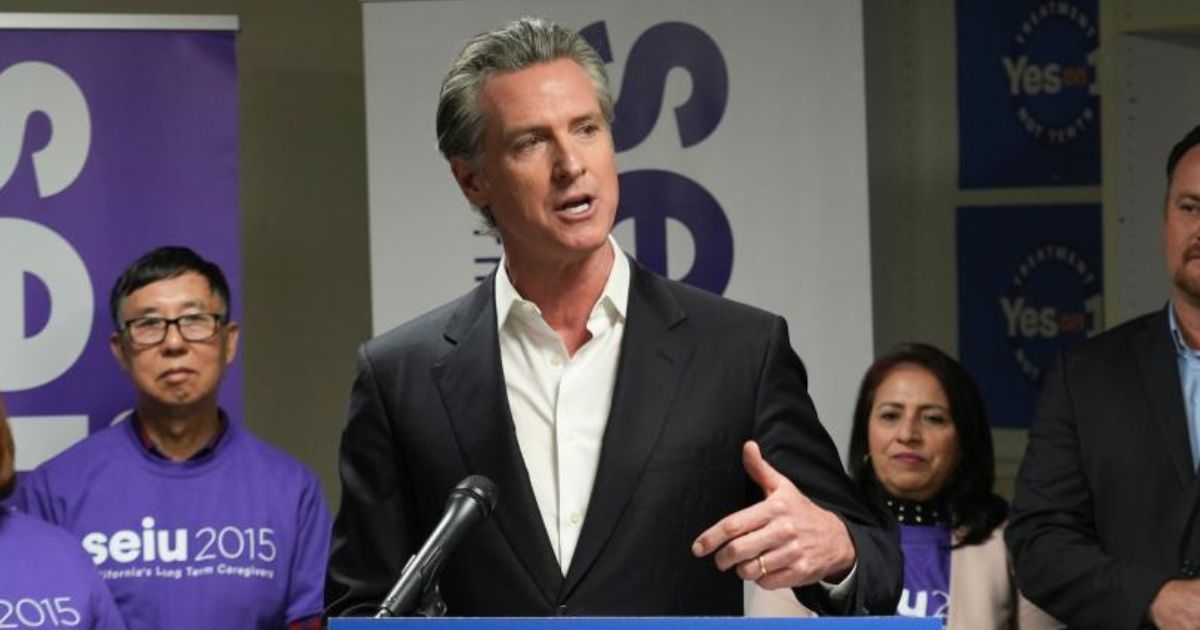In an effort to address California’s persistent homelessness crisis and overhaul the state’s mental health system, Californians are preparing to cast their votes on Proposition 1, a statewide ballot measure proposed by Democratic Governor Gavin Newsom.
This measure, heralded as the first major update to the state’s mental health system in two decades, aims to reallocate funds from a voter-approved tax on millionaires, enacted in 2004, towards housing and substance use programs.
Governor Newsom argues that Proposition 1 is imperative in combating the homelessness crisis by increasing investments in housing and substance abuse programs. However, there are concerns among social providers who fear that reallocating funds could jeopardize existing programs that prevent homelessness.
Budget To Set Mental Health System
The proposition seeks to restrict how counties utilize funds generated from the millionaire’s tax, which currently amounts to between $2 billion and $3 billion annually and accounts for approximately one-third of the state’s total mental health budget.
If passed, counties would be mandated to allocate about two-thirds of these funds towards housing and programs for homeless individuals grappling with severe mental illnesses or substance abuse issues.
Critics of Proposition 1 raise concerns about the potential implications of applying a uniform formula to all counties, irrespective of the size of their homeless populations. They argue that this approach could result in competition between programs for children and those designed to aid homeless individuals.
Additionally, Proposition 1 proposes authorizing the state to borrow $6.38 billion for the construction of 4,350 housing units, with half earmarked for veterans. Furthermore, the measure aims to add 6,800 mental health and addiction treatment beds, addressing a critical shortfall in the state’s current inventory.
Governor Newsom, backed by law enforcement, first responders, hospitals, and major city mayors, has campaigned vigorously for Proposition 1, amassing over $13 million in support. This significant financial backing has far exceeded the modest $1,000 raised by opponents of the measure.
Speaking at a campaign event, Governor Newsom emphasized the urgency of addressing the homelessness crisis, stating, “The status quo is not acceptable. People are demanding more of us, better of us.”
California’s homelessness crisis has emerged as one of the most pressing issues facing the state, with significant implications for Governor Newsom’s political future, potentially affecting any aspirations for national office.
The state currently accounts for nearly one-third of the homeless population in the United States, with approximately 181,000 Californians in need of housing. To meet the demand, California requires an estimated 8,000 additional units to provide adequate treatment for mental health and addiction issues.
Newsom’s administration has already allocated substantial funds towards addressing the crisis, including $3.5 billion to repurpose dilapidated motels into homeless housing and $2 billion in grants for building treatment facilities.
Proposition 1 is positioned as the final component of Newsom’s broader plan to reform California’s mental health system, following legislative efforts to facilitate involuntary treatment for individuals with behavioral health issues.
As Californians head to the polls, the outcome of Proposition 1 will likely have far-reaching implications for the state’s approach to homelessness and mental health care.

